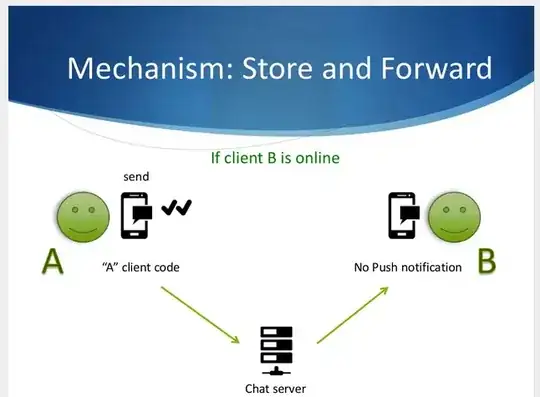Warning: This answer is pure speculation. It is also hard to get references for covert programs, but I've linked to Wikipedia pages which have some good references. I've also stayed away from examining WhatsApp's implementation, as there are several other Security SE posts discussing various aspects of it.
I hope I have matched your scenario correctly in this hypothetical:
Consider a government agency in (hypothetically) India called the Massive Surveillance Bureau (MSB). The MSB has detected that certain WhatsApp messages containing false rumours were forwarded in a sensitive area, which eventually led to a riot. What would it take for the MSB to track down the sender of the first message?
Firstly, let's look at what the MSB minimally requires to be able to perform this tracking. The MSB would need three pieces of data for all messages:
- A hash of the content,
- Sender identifier
- Timestamp
Even if it does not have access to plaintext, but can just has a hash of the content, it can still identify the first sender of a particular message (Note that changing even a single character breaks this scheme).
Next, let's consider all of the different places that the MSB can place itself.
Scenario 1: The MSB can read all carrier traffic and even ISP traffic in encrypted form. In this case, it cannot establish item 1 -- the hash. It could however use metadata like packet size, sender IP and timestamp to roughly estimate when a message was sent to one of Whatsapp's servers. Given enough ground-work (e.g. find first sender, confiscate and investigate device forensically, interrogate owner) a reasonable assumption could be made.
Scenario 2: The MSB can read all carrier traffic and even ISP traffic in India.
This could either be manually gathered by making requests to all carriers (like PRISM) or automatically by some sort of a monitoring system (like the CMS or Tempora). Since WhatsApp relies on the underlying carrier signal, a man-in-the-middle attack is possible, whereby the MSB clones and spoofs devices by receiving the first SMS authentication message (e.g. here). Now it has real plaintext data; it can find all messages similar to the target and lookup the first one.
Scenario 3: The MSB has a backdoor with read access to WhatsApp's stored messages in a database. This is very similar to scenario 1, since the keys are not available to it; it can makes estimates based on available metadata about sender, timestamp and message size. If it had a program like PRISM, WhatsApp could intentionally setup an insecure version of the app on certain devices, making it easier to perform other attacks.
Scenario 4: The MSB has infected all mobile devices in India with malware (e.g. IRRITANT HORN. This is similar to scenario 2. The MSB now has access to all decrypted messages on-device.
Anyways, that's all speculation. Most of these attacks will still be difficult now that WhatsApp has E2EE (desribed here, analyzed here). You may find this real traffic analysis paper from GeorgiaTech useful
EDIT: Yay!
